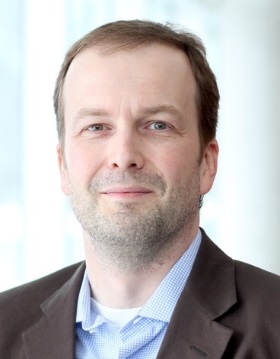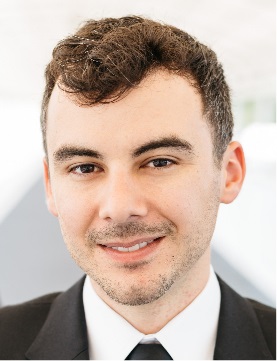TORONTO, Nov. 9, 2017 ─ York University welcomes the appointment of three new Canada Research Chairs in the Faculty of Science and renewal of a CRC in the Faculty of Liberal Arts & Professional Studies.
The Government of Canada recently announced the Fall 2017 CRC recipients at post-secondary institutions across Canada, who will receive $145.6 million in funding from the program, along with $12.2 million in research infrastructure funding from the Canada Foundation for Innovation (CFI). Among the recipients in this round are York University professors Thomas Baumgartner, Leah Vosko, Raymond Kwong, and Christopher Caputo. Tier 1 CRCs receive $1.4 million over 7 years and Tier 2 CRCs receive $500,000 over 5 years.
“York is delighted to welcome three new Canada Research Chairs and one successful renewal. Congratulations to Professors Baumgartner, Caputo, Kwong and Vosko,” said Robert Haché. “The CRC program, which helps to support some of the world’s best researchers in building their innovative research programs, continues to make a strong contribution to the development of research at York,” he added.
 Thomas Baumgartner, Professor in the Department of Chemistry, Faculty of Science, is Canada Research Chair in Sustainable Organomain Group Materials (Tier 1).
Thomas Baumgartner, Professor in the Department of Chemistry, Faculty of Science, is Canada Research Chair in Sustainable Organomain Group Materials (Tier 1).
Baumgartner’s research, focused on the design of novel materials that can be used to lower the anthropogenic carbon footprint, will provide knowledge crucial to the development of essential next-generation technologies for a sustainable future.
His program targets several energy-focused topics by addressing the efficient and sustainable use, conversion, and/or storage of energy via advanced synthesis in a bottom-up approach. The research also looks at the design of strongly luminescent species and their application as biomarkers and sensors for a variety of cellular processes. In addition to the CRC funding, his research will receive $275,000 in CFI funding.
Leah Vosko, Professor in the Department of Political Science, Faculty of Liberal Arts & Professional Studies and a Fellow of the Royal Society of Canada, has been renewed as Canada Research Chair in the Political Economy of Gender and Work (Tier 1). The CRC renewal will allow Vosko to examine impediments to the realization of labour market membership for workers facing multiple dimensions of precariousness in employment across several jurisdictions and fields of employment policy. It will allow her to scale-up to the pan-Canadian level her ongoing research on the effectiveness of workplace regulation in Ontario. Her research also includes: development of an Employment Standards Database, offering a platform for comparative research on employment standards; the creation of the Canada Labour Code Data Analysis Infrastructure, transforming a large-scale administrative database that the Government of Canada's Labour Program maintains into a research tool yielding new insights into labour standards compliance across the country; and an investigation identifying avenues for realizing labour market membership among workers labouring transnationally.
Raymond Kwong, Assistant Professor in the Department of Biology, Faculty of Science, is Canada Research Chair in Environmental Toxicology (Tier 2). His research examines the molecular and physiological effects of environmental stressors (e.g., anthropogenic and natural stressors), and the fundamental mechanisms regulating homeostatic processes in fish. The research, integrating environmental toxicology, molecular physiology, and functional genetics, will advance understanding of the mechanisms of toxic action, animal function, and physiological responses to contaminants. This information is critical for improving environmental risk assessment and monitoring, and for identifying sensitive biomarkers in the evaluation of aquatic health in contaminated waters. In addition to the CRC funding, the research will be supported with $125,000 in CFI funding.
 Christopher Caputo, Assistant Professor in the Department of Chemistry, Faculty of Science, is Canada Research Chair in Metal-Free Materials for Catalysis (Tier 2). Many chemical reactions to generate desirable products or energy are not favourable under ambient conditions. To overcome this, catalysts are routinely used to lower the activation barrier of these reactions. However, many catalysts are derived from precious and expensive transition metals. Caputo’s research targets new, low cost materials derived from readily available main-group elements to develop next-generation Lewis acidic materials to replace traditional catalysts. In addition to CRC funding, his research will receive $125,000 in CFI funding.
Christopher Caputo, Assistant Professor in the Department of Chemistry, Faculty of Science, is Canada Research Chair in Metal-Free Materials for Catalysis (Tier 2). Many chemical reactions to generate desirable products or energy are not favourable under ambient conditions. To overcome this, catalysts are routinely used to lower the activation barrier of these reactions. However, many catalysts are derived from precious and expensive transition metals. Caputo’s research targets new, low cost materials derived from readily available main-group elements to develop next-generation Lewis acidic materials to replace traditional catalysts. In addition to CRC funding, his research will receive $125,000 in CFI funding.
York University is known for championing new ways of thinking that drive teaching and research excellence. Our students receive the education they need to create big ideas that make an impact on the world. Meaningful and sometimes unexpected careers result from cross-discipline programming, innovative course design and diverse experiential learning opportunities. York students and graduates push limits, achieve goals and find solutions to the world’s most pressing social challenges, empowered by a strong community that opens minds. York U is an internationally recognized research university – our 11 faculties and 26 research centres have partnerships with 200+ leading universities worldwide. Located in Toronto, York is the third largest university in Canada, with a strong community of 53,000 students, 7,000 faculty and administrative staff, and more than 295,000 alumni. York U's fully bilingual Glendon campus is home to Southern Ontario's Centre of Excellence for French Language and Bilingual Postsecondary Education.
Media Contact:
Janice Walls, York University Media Relations, 416 736 5543, wallsj@yorku.ca

